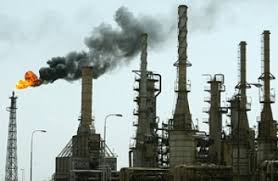
As Yemenis have once more be made to endure a severe fuel penury and a lengthy electricity blackout following acts of sabotage so severe that the state has been left unable to cope, forced to admit defeat as officials scramble to return civilian life to some form of normality, the Central Bank of Yemen published a report in which it revealed that Yemen’s February crude oil exports “fell to 800,000 barrels from an estimated 2 million in January.”
In four weeks, Yemen has seen its oil production drop by over 50% due to severe acts of sabotage. "The drop in crude exports resulted in a fall in their revenues to only $89 million, down from $215 million in January," Saba (state news agency) reported, quoting the central bank report.
As state officials are getting ready to meet their foreign partners in London on April 29th, for the Friends of Yemen conference, such a report will likely raise some questions as to the coalition abilities to restore law and order.
While the international community has offered Yemen unprecedented financial and political support ever since 2011 uprising, determined to prevent the impoverished nation from becoming a failed state like Somalia, experts have warned that Yemen’s apparent security crisis and its rundown with tribal dissidents will unnerve its backers, see at a time when they want to witness strong leadership.
As per reported by YCB, not only has the country oil export fallen by half since January, but the government has been forced to import larger quantities of oil products to “meet domestic demand”, thus putting further strain on its national budget and its foreign currency reserves.
Yemen spent a reported $497 million in January and February on fuel import and exported $304 million worth of crude for the same period. Economists all agree that Yemen cannot possibly sustain such losses, something at some point will have to give.